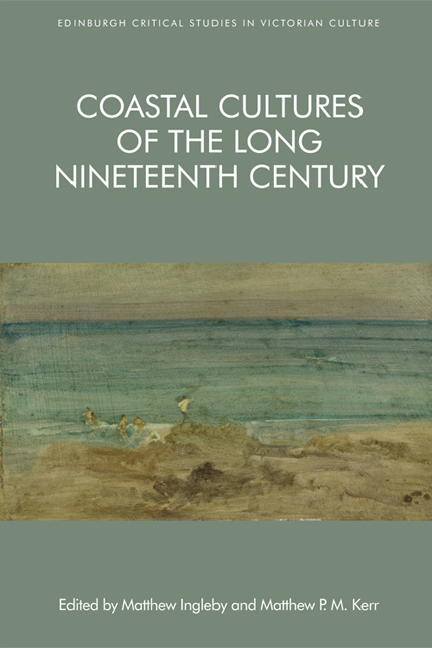4 - The Battle of Torquay: The Late Victorian Resort as Social Experiment
Published online by Cambridge University Press: 01 May 2021
Summary
Introduction
Coasts can be considered marginal or liminal sites – beyond the land, or between land and sea – and this has led some commentators to suggest that they may offer the possibility for social transformation. Rob Shields combined Foucault's heterotopia or ‘spaces of otherness’ with Mikhail Bakhtin's study of carnivalesque festive culture and other theories of marginality to suggest that sites like Brighton's beach may offer ‘moments of discontinuity in social space … moments of “in between-ness,” of a loss of social co-ordinates’, and hence the possibility of social change. Kevin Hetherington, more sceptical about the ‘romance of the margins’, notes that heterotopia do possess social codes, though these must be different to the spaces beyond them. Social and cultural historians have been similarly cautious, suggesting that this potential may have become tamed in late Victorian resorts; that seaside leisure was itself a form of ‘social control’; or that this reading misses other, subtler interpretations. Certainly Mass Observation accounts of Blackpool holiday visitors in the 1930s noted that drinking seemed to dissolve the class and gender distinctions observed back home in Bolton: ‘Here, through drink, the great crowds are fused more than ever into one more common mass of work-free humanity.’
While Victorian resort and coastal spa towns had their origins in fashionable eighteenth-century tourism, they grew at extraordinary rates between 1801 and 1851. The population of fifteen ‘watering places’ in England and Wales grew by 254 per cent over this period, outstripping the growth of the fifty-one manufacturing towns recorded by the 1851 census over the same period. Much of this growth came from eleven coastal resorts – Brighton, Ramsgate, Margate, Worthing, Weymouth, Scarborough, Ryde, Cowes, Ilfracombe, Dover and Torquay – which grew by 314 per cent. In fact, John Walton suggests that the seaside resort was a particular kind of industrial town, ‘with health and pleasure as its products’, possessing an infrastructure or ‘industrial plant’ of hotels, sea defences, promenades and so on.
- Type
- Chapter
- Information
- Coastal Cultures of the Long Nineteenth Century , pp. 79 - 97Publisher: Edinburgh University PressPrint publication year: 2018



